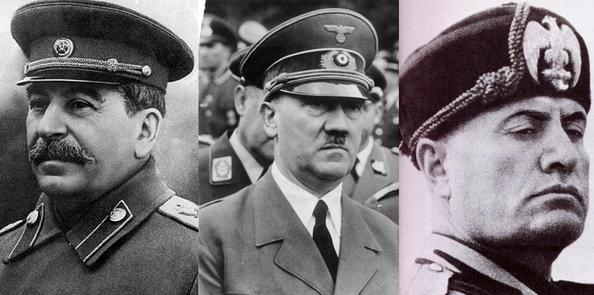Big Brother Urban Legends November 28, 2017
Author: Beach Combing | in : Contemporary , trackbackThe three great totalitarian states that dominated Europe in the 1930s were the Soviet Union, Nazi Germany and Fascist Italy. Did these have their own urban legends? Of course. But what were they? Beach wants only to open one obvious form of totalitarian urban legend: what he will provisionally call ‘the big brother story’. Now, of course, all of these states had a big-brother complex: pictures of Hitler, Mussolini or Stalin were on every corner. It was impossible to walk to the local library or children’s park without passing five or six portraits of the great leader. One of the results of this was that these personalities became part of the family, they frequently appeared on the mantelpiece, in any case. They became, naturally enough, figures in the fantasy life of men, women and children who would sometimes address the head of state in their private conversations. This explains the fact that, again and again, when disasters struck it was, in the eyes even of victims, not Hitler’s fault, or Mussolini’s fault or Stalin’s fault, it was their advisors. So wasn’t it natural that the people told stories about Hitler/Mussolini/Stalin? An example that appears in that great Soviet novel, Life and Fate.
He told Nadya and Lyudmila a story they had all known even before the war. One night Stalin appeared in the metro, slightly drunk, sat down beside a young woman, and asked: ‘What can I do for you?’
‘I’d love to look round the Kremlin’, the woman replied.
Stalin thought for a moment and said: ‘Yes, I can certainly arrange that for you.’
‘See!’ exclaimed Nadya [to her father], ‘You’re such a great man now that Mama let you finish the story without interrupting. She’s already heard it a hundred and ten times.’
Of course, the real joke here is Stalin getting on the metro.
Beach suspects that there are these tales in most societies: there are some medieval echoes of kings acting in this kind of way (‘a bit of Harry in the night’). But in totalitarian societies they were presumably much more common. Some will have been humorous like this one, some will have been justice-based (‘and the Duce had them all sacked…’), some will have perhaps been edged with criticism of policies (though suspect not many for obvious reasons). The stories would have been doubly successful because not only were they amusing, they also suited the purposes of the regime.
Can anyone bring in other examples to the table: drbeachcombing AT yahoo DOT com
30 Nov 2017. Well, real (? but who knows?) stories about Stalin (and his morbid sense of humour) are better than urban legends. My favourite one is about Commissar Nosenko:
Correct me if I’m wrong but I cannot imagine an anecdote like this about Hitler or Mussolini — compared to Jughashvili they were basically imbeciles. Speaking of “Big Brother urban legends” (in a broader sense), have a look at this one:
I’ve heard it being told in the Communist Poland (in a hotel rather than on a train) as an urban legend (sensu stricto) rather than a joke
(i.e. it happened to a FOAF…)
Best,
Filip
(Hey, NSA, could you give me and Dr. Beachcombing a multi-million grant for writing down folklore stuff from all the conversations you’re eavesdropping? Thank you.)
Lewis JWH, 30 Dec 2017: My Russian (and, by birth and upbringing, Soviet) mother-in-law told me this anecdote regarding Stalin. I remember that it was published in a collection of short stories by a Georgian writer, but it has a legendary flavour. A famous Georgian dancer had an impoverished upbringing in a provincial town before the Revolution. One day, he witnesses a commotion in the street. Some masked robbers are shooting their way out of a holdup. One robber passes the boy and, somehow, his mask slips. The boy is the only witness. The robber leans close and says, “If you tell anyone about me, I’ll come and get you.” Years later, the boy has made his name as one of the greatest dancers in the USSR. He is invited to perform before Stalin. From the moment he sees Stalin’s eyes, he realises that he’s in the presence of the robber who terrified him in the dusty provincial town. Nevertheless, he keeps his composure all through the performance. After the show ends, Stalin comes up to congratulate him. Stalin makes banal and predictable conversation, and the dancer begins to question his initial reaction. At the end of the evening, when the dancer is about to depart, Stalin comes over to say goodbye. He looks straight into the dancer’s eyes and says, “So nice to see you again.” If this did circulate as a legend, it would probably have been post-thaw. It’s one of those very 20th Century stories, like the British Tommy who didn’t shoot Hitler in the trenches or the French mayor who spoke to a Scottish council delegation in the broad Scots he had learned from the Seaforth Highlanders he had shared a POW camp with.
Max 30 Dec 2017: Max points out that I’ve already written on this to some extent.



